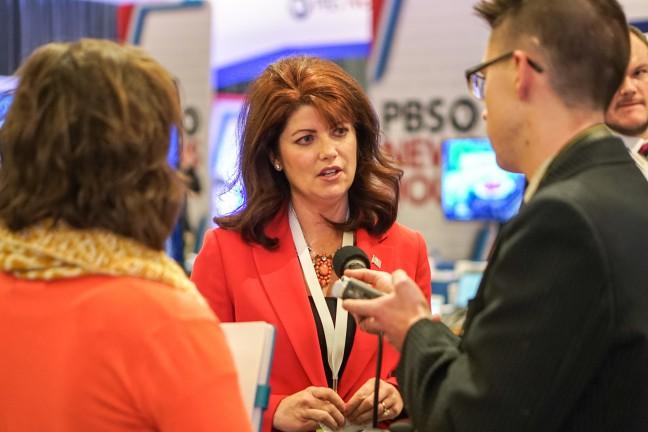With the recent announcement of Republican Rebecca Kleefisch’s campaign for Governor of Wisconsin, state abortion rights will face challenges in the coming months.
The former Lieutenant Governor, according to her official 2022 campaign webpage, “is well known for her pro-life record.” In fact, Kleefisch said on Sept. 9 to conservative radio host Mark Belling she would sign a heartbeat bill if elected governor.
A so-called “heartbeat bill” is a piece of legislation very similar to the law recently passed in Texas banning abortions once a fetal heartbeat can be detected around the six-week mark. Not only is this time frame before most women even know they are pregnant, but this law harrowingly makes no exceptions for rape or incest.
The national controversy over the Texas abortion ban and most importantly, the Supreme Court’s failure to block the law, will no doubt influence conservative, anti-abortion lawmakers of other states to act.
UW campus shows signs that vaccinations are best in fight against COVID-19
In her interview with Belling, Kleefisch said Donna Rozar, a representative of the 69th district in the Wisconsin State Assembly, is in the process of formulating a heartbeat bill. If Kleefisch is elected, Republican state lawmakers like Rozar would likely propose anti-abortion “heartbeat bills” under her governorship.
The news of Kleefisch’s strict abortion stance and her corresponding bid for Governor is a terrifying reality the women of Wisconsin are facing. Also, this news emphasizes the grave importance of this upcoming election.
Thousands of women each year in Wisconsin rely on the already-sparse abortion services this state has to offer. According to most recent data, there are just six facilities to get an abortion at in the entire state, only three of which are clinics. In the case of a potential “heartbeat bill” making its way into law, abortions would be banned — no matter the circumstances of the pregnancy — once a heartbeat can be detected around six weeks.
If this “heartbeat bill” resembles that of Texas, abortions would be banned regardless of the circumstances of the pregnancy once a heartbeat can be detected at six weeks. The only exception would be to save the life of the woman if their pregnancy was going to be life threatening.
Politicized 2021-23 Wisconsin state budget provides tax breaks for the wealthy
A restrictive abortion bill like this could also create controversy when it comes to ethical healthcare. This bill places a higher value on an early fetal heartbeat than it does on the mental, emotional and physical wellbeing of the women who would be forced into the medical procedure of labor and delivery.
Even if a woman were to become aware of the pregnancy before six weeks, Dr. Jennifer Villavicencio in her interview for The New York Times said, “forcing them to find out about a pregnancy and make a decision about how to manage it in a short period of time is antithetical to ethical care.”
The abortion experience in a state where the practice isn’t fully funded is also often a painful one. An anonymous University of Wisconsin student once detailed her troubling abortion experience to “The Tab” to raise awareness. After becoming pregnant from an unsupportive relationship, she chose to get an abortion and had to face protesters outside the abortion clinic and condescending UW administrators.
If heartbeat legislation similar to Texas’ law were to be enacted in Wisconsin, the bill also might not sympathize with victims of sexual assault who fall pregnant. It is estimated one in seven Wisconsin women are raped during their lives.
Absentee ballot voting could increase participation and representation in our electoral system
In fact, one in four women say they were sexually assaulted during their time as undergraduate students at UW. For many Wisconsin women, including those in Madison and here on campus, abortion is an essential healthcare service. It is for these extremely traumatic cases the right to an abortion must be protected the most.
Kleefisch’s bid for governor and her willingness to sign such strict abortion legislation threatens to change the livelihoods of thousands of Wisconsin women. Even if she isn’t able to get a heartbeat bill passed or isn’t elected at all, her pro-life campaign will increase support for lawmakers looking to limit abortion rights across the state.
These changes will particularly affect female students at UW, who will lose the inherent right to choose what happens to their own body. This situation highlights how important voting is in the upcoming 2022 Wisconsin gubernatorial elections.
Hallie Claflin ([email protected]) is a sophomore majoring in journalism and political science.




















